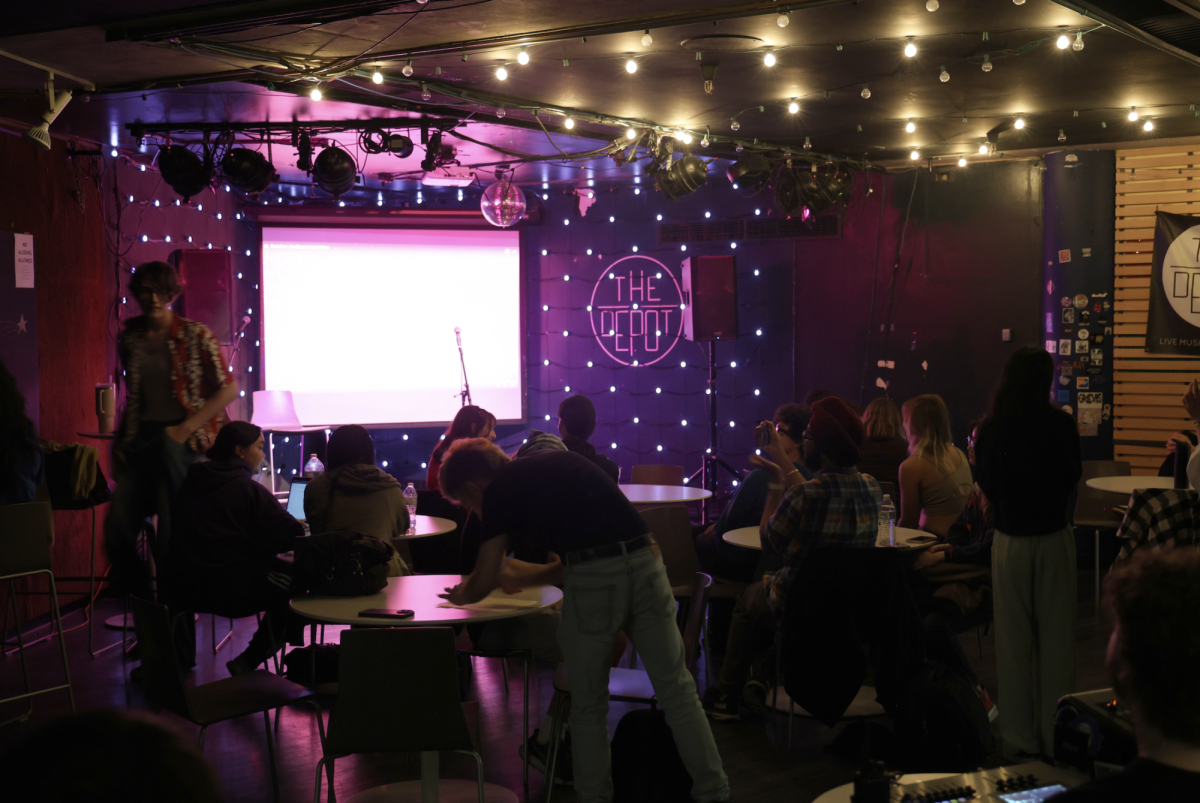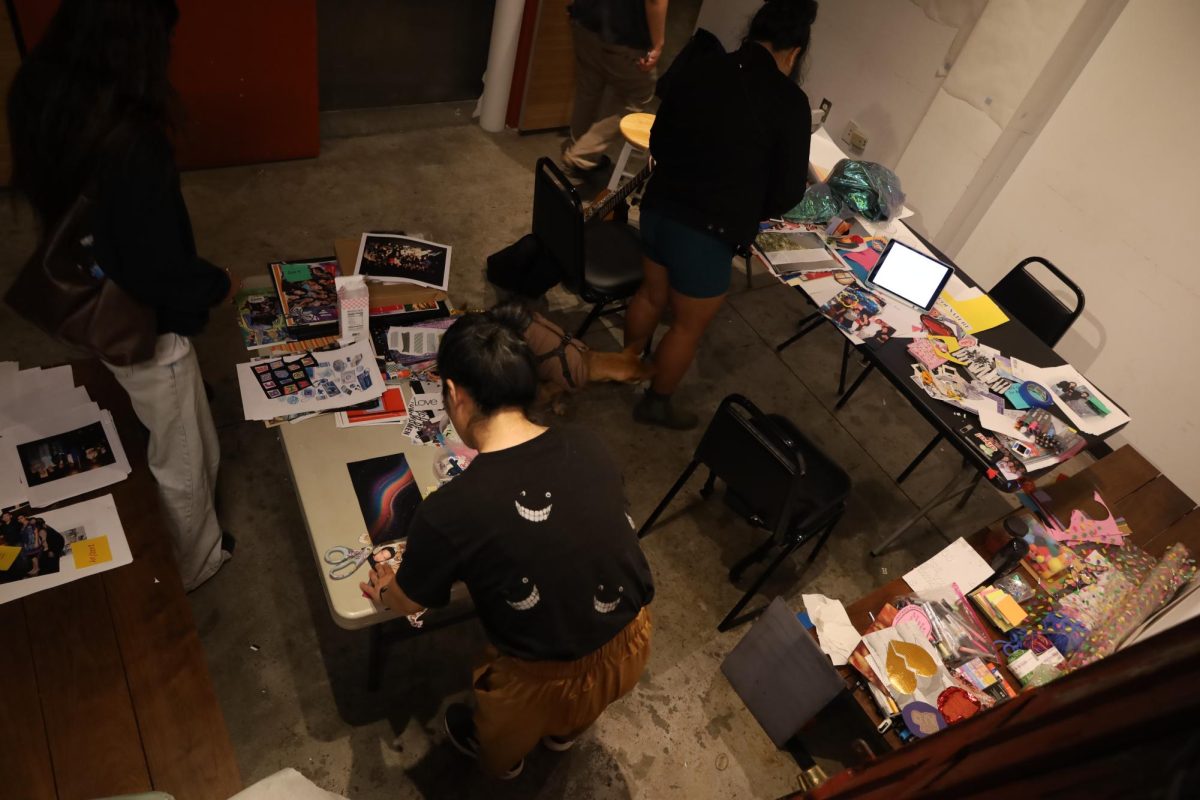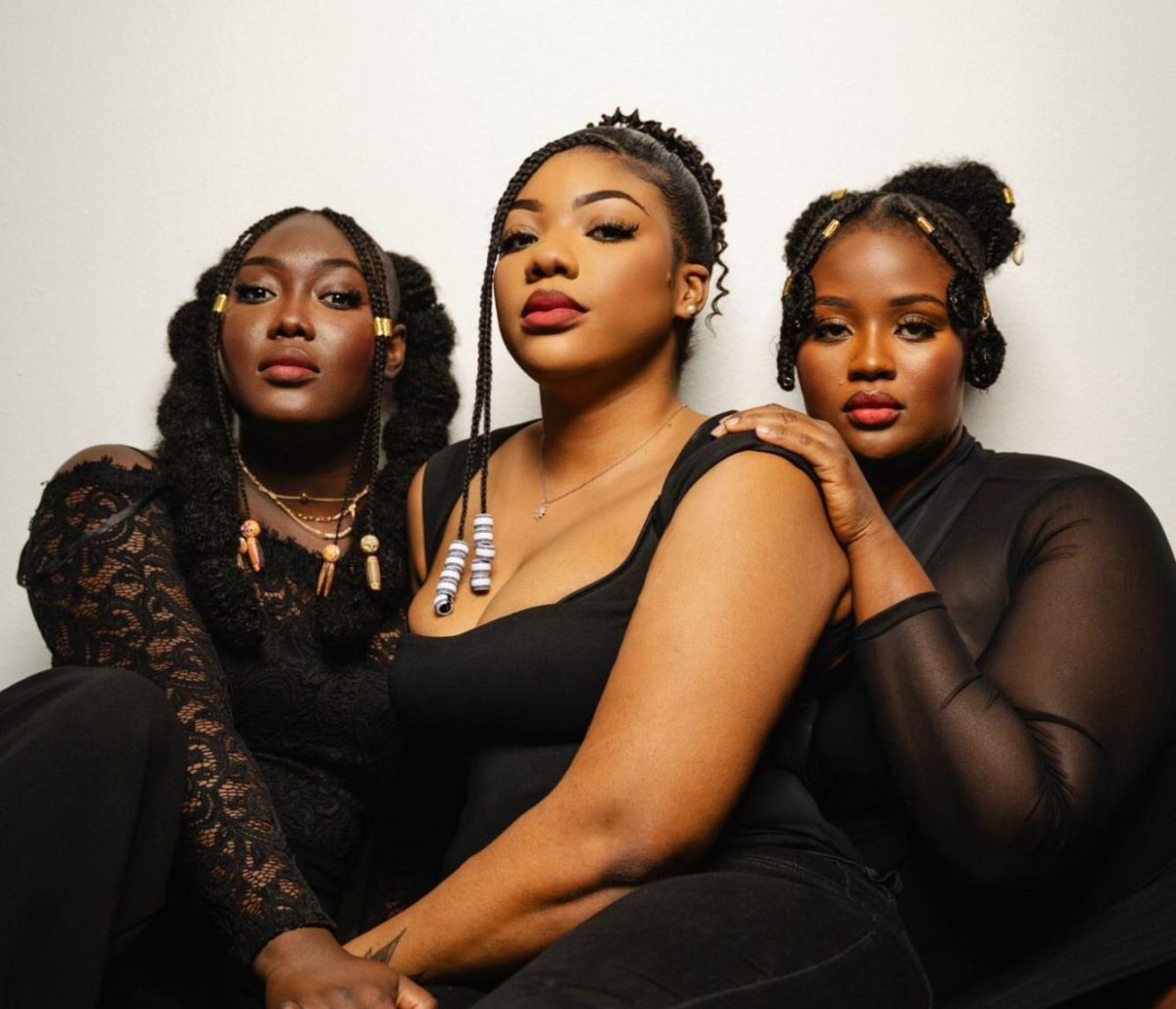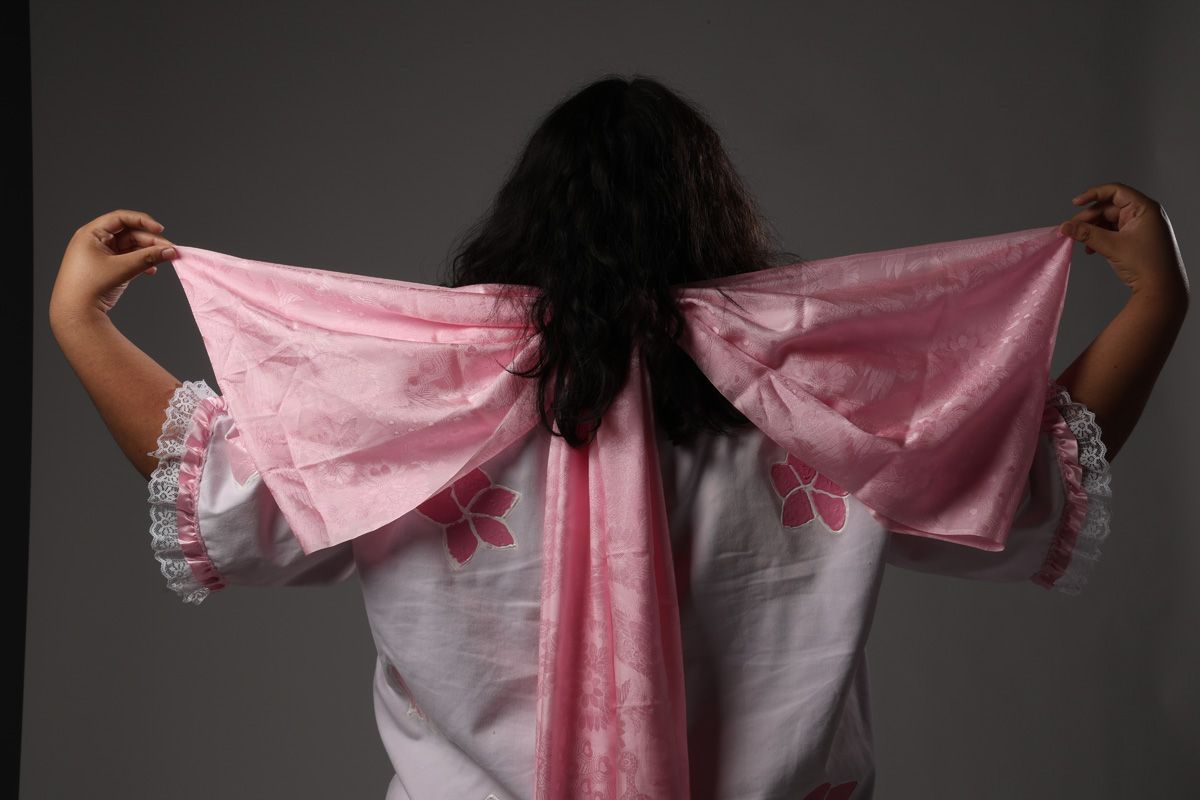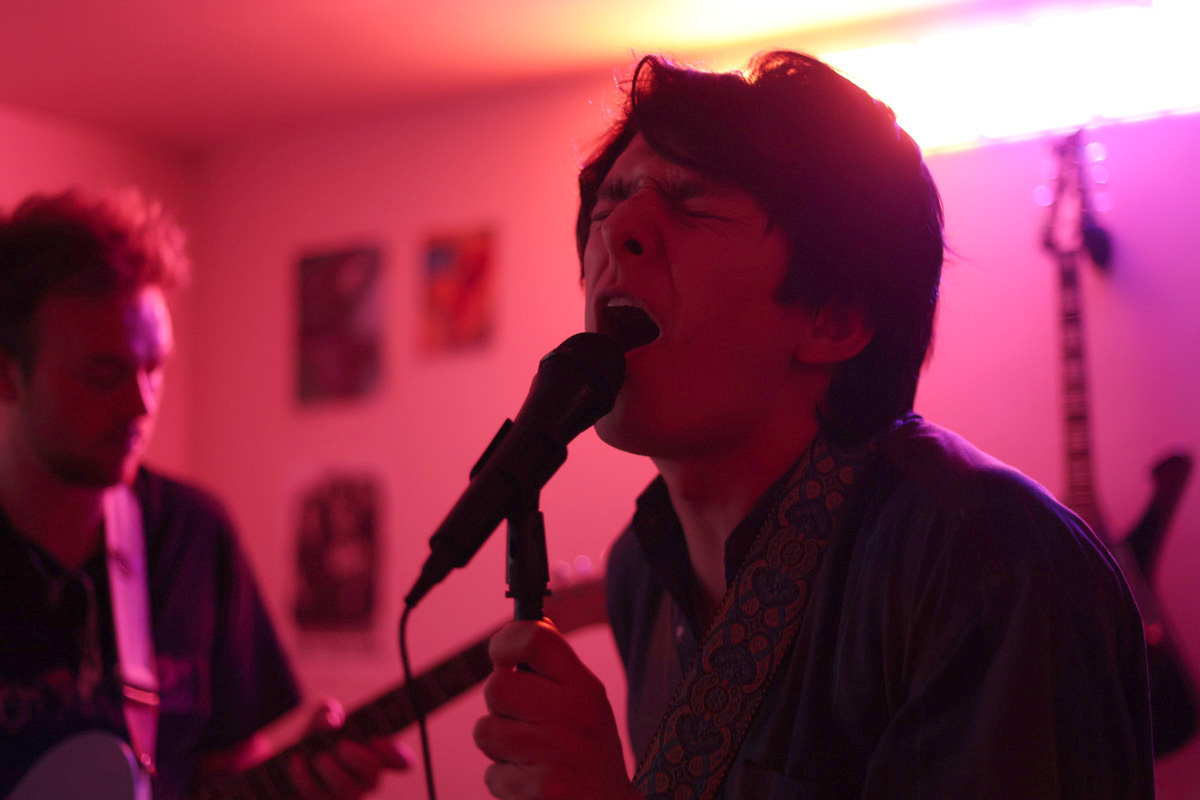
What do you think about when you see a kitesurfer, windsurfer, or sailor on the water?
Do you pause for a moment to marvel at their athletic prowess?
Do you wonder how they are able to remain upright on the fickle body of water that is the ocean?
Do you become saddened by the realization that they are engaged in a physical activity that you will probably never be able to do?
You probably wonder all of those things and more—but do you ever wonder what becomes of those brightly colored sails and kites when nature, user-error, or even time renders them useless?
Enter the MAFIA Bags showroom on Clement Street in the Richmond, where Marcos Mafia, his sister Paz, and two employees are single-handedly tackling the waste problem that plagues the sail industry.
MAFIA Bags’ concept is simple: they take damaged and otherwise unusable sails and turn them into bags, backpacks, wallets, and other accessories, that often feature the distinct markings of the sails they came from. According to their website, for every thousand products made, sixty-one sails will be recycled.
Windsurf sails alone can cost up to $1,090, a high-price point for something that usually ends up sitting in a landfill, someone’s garage, or in the water once it’s unable to be used, according to Marcos.
“The funny thing is, you probably have thirty or forty companies making sails, but you have a single company which recycles them,” Marcos says as he thumbs through stacks of brightly colored sails waiting to be cut and turned into MAFIA products.
Marcos, a soft-spoken, twenty-five-year- old expatriate from Argentina, has been doing water sports since he was a self- described “little guy.” He started off sailing at eight-years-old in Buenos Aires, and soon found he wanted to try his hand at other water sports.
After realizing that wave quality at the river near his house was not ideal for surfing, he chose something that the ample wind in his region would lend a hand to: kitesurfing. He has been doing it for fun – and professionally for the last five years – ever since.

Marcos Mafia, Mafia Bags founder, shows a wall of potential bag designs
Marcos’ lifelong affinity for the water has made him hypersensitive about the environmental impact of waste that ends up in the water. Polluted water in his native Argentina often made him sick if he accidentally ingested the tiniest bit of it. For him, MAFIA bags is a way to do his part to minimize human’s impact on water.
He goes out on weekends to collect sails that are ready to be retired. After big events, companies sometimes contact him to make use of their sails and banners—like Vans did after this year’s United States’ Open of Surfing.
“Since I was eight years old, I’ve been getting into the water and that made me really conscious about what happens when we throw stuff on the streets and throw away bottles,” he says. “Just being in touch with water from sports and it being something I really love just made it so that I wanted to know where things end up and where things come from.”
A few years ago, when Marcos found himself working for a number of the companies that also sponsored him, he realized that there was a need to be met in terms of bridging the gap between sail production and sail waste. He also realized something else: he does not like working for other people.
“I just realized I was really into [these] companies and that’s not what I wanted,” he says.
Taking the skills he learned about product development and the inner workings of running a small company, he decided to go into business for himself, and thus MAFIA Bags was born.
With an initial investment from a friend’s father and his sister Paz acting as the cofounder, Marcos started the company in 2011. With the help of their friends, they were able to build a name for themselves selling MAFIA products in their native Buenos Aires and across South America.
Last year, in an effort to break into a more international market, create jobs, and ensure that their production remained hands-on and transparent, the company decided to make the move to the United States.
With $26,000 raised from a Kickstarter campaign, they headed for San Francisco because of its large water sports community. It also helped that the city has a soft spot for “green” businesses.
“Just bringing the whole production to California was strange because people are used to hearing that things have been outsourced, but we are bringing it here,” says Marcos.
Instead of going the way of similar start-ups and other San Francisco-based bag companies and setting up shop in the increasingly hip Mission or South of Market neighborhoods, they renovated a formerly decrepit storefront in a mostly residential part of the Richmond district.

While MAFIA bags would not be able to exist without kite and wind surfers and sailors, Marcos notes that MAFIA bags are for everyone.
“We’re not just focusing on people who sail or kitesurf. We’re focusing on people who like to feel the wind on their heads, people who like to ride bikes, people who like to go to see the view at Ocean Beach, and just go enjoy life as it is.”
For now, production is being handled by a local seamstress and tailor hired by Marcos, who comes up with the designs for the items. They cut all the sails by hand, then sew the pieces together and attach a MAFIA label. Prep for each bag takes about an hour and a half to complete.
“It’s a lot of work in a way but it’s like super rewarding,” says Marcos. “You don’t need to make another backpack that’s already on the market or another thing how everybody does it.”
The biggest challenge for MAFIA in San Francisco has been not having the same support of friends and family as the company had in Argentina, says Marcos. “It’s a whole new industry and world,” he says.
Lucky for him, if there is one thing San Francisco residents love, it is products that are made within the city limits. With companies like Chrome, Timbuktu, and Rickshaw Bags proudly boasting their “Made in San Francisco” credentials and arguably competing for the same clientele as MAFIA, finding their place in the sea of bag producers may prove to be difficult.
However, where some might see a challenge, Marcos chooses to look at competitors as colleagues instead of competition.


